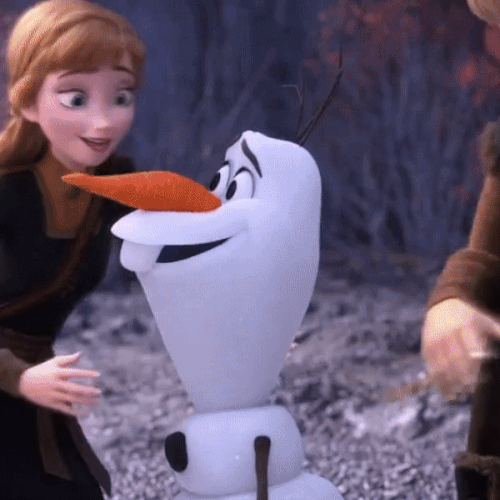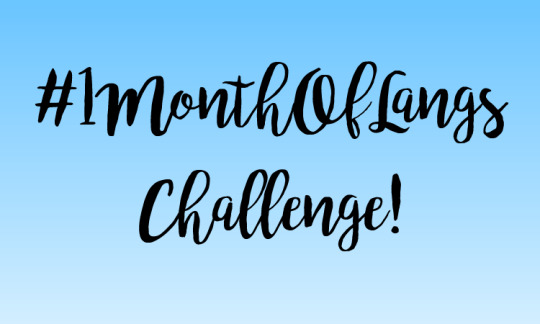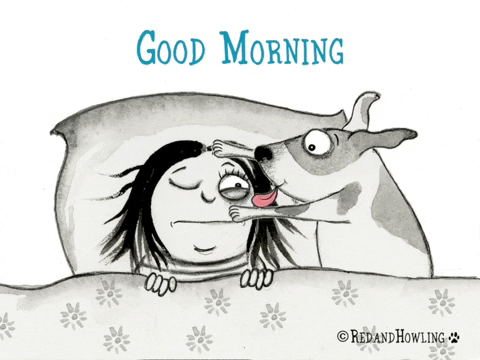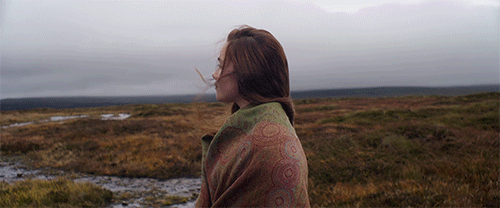#1MonthOfLangs
Text
10- Vocab list: family | 1MonthOfLangs

la famiglia - family
il genitore - parent (la genitrice -> mother, feminine parent)
la madre, la mamma - mother, mom
il padre, il papà - father, dad
la matrigna - stepmother
il patrigno - stepfather
il figlio - son
la figlia - daughter
il figliastro - stepson
la figliastra - stepdaughter
il fratello - brother
la sorella - sister
il fratellastro - half/step-brother
la sorellastra - half/step-sister
il suocero - father-in-law
la suocera - mother-in-law
il genero - son-in-law
la nuora - daughter-in-law
il cognato - brother-in-law
la cognata - sister-in-law
il nonno - grandfather
la nonna - grandmother
il bisnonno, il bisavolo - great-grandfather
la bisnonna, la bisavola - great-grandmother
il trisnonno, il trisavolo - great-great grandfather
la trisnonna, la trisavola - great-great grandmother
la zia - aunt
lo zio - uncle
la prozia - great-aunt
il prozio - great-uncle
il cugino, la cugina - cousin
il nipote, la nipote* - nephew / grandson, niece / granddaughter
*(yes, we have the same word for both the situations)
-> famigliare, familiare adjective and noun meanings:
- domestic, familial (a.) (e.g. un ambiente familiare = a familial environment)
- family, good for a family (a.) (e.g. una confezione familiare = a family size pack)
- familiar, well-acquainted (a.) (e.g. una faccia famigliare = a familiar face)
- informal, friendly (a.) (e.g. un ristorante famigliare = an informal restaurant)
- station wagon car (n.)
- relative, family member (n.) (e.g. un mio famigliare = one of my relatives)
-> familiare originates (and is used more often) from the Latin familiarem ; famigliare originates from the word “famiglia” and is considered more popular: the versions of these kinds of words (there are more that you can use in two different ways) that originate from Latin, are considered more “erudite” and are the ones that are usually preferred. Neither of them is wrong btw (so you can use famigliare as well anyway).
[it’s so sad that some of these nouns -half/step-bro/sis, step-parent, stepchild,...- have the negative acception whithin them, as in fairytales]
#it#italian#italiano#1MonthOfLangs#italian language#italian langblr#italianblr#language#langblr#parole words#vocabs#italian vocabs#vocabulary#italian vocabulary
902 notes
·
View notes
Text
#1monthoflangs
day two, basic sayings
thank you, tapadh leat / tapadh leibh (formal)
welcome, fàilte
i am sorry, tha mi duilich
excuse me, gabh mo leisgeul.
brilliant, sgoinneil
bye, tìoraidh
#1monthoflangs#language#langblr#language learning#learning languages#studyblr blog#study notes#bilingual#multilingual#languages#scottish gaelic#gaelic#basic sayings#vocab#language blog#language vocabulary#vocabulary
11 notes
·
View notes
Text

Hey everyone! Today, I’d like to introduce y’all to the 1 Month of Languages Challenge! (aka the #1MonthOfLangs Challenge)
This can be done as a stand-alone challenge, or it can be seen as a subset of the #1YearOfLangs challenge that I created last year! You could do this challenge for each month within the year-long challenge, or you could just do one month of it, or any other possible variation of it! It’s totally up to you and definitely NOT mandatory! This is just to get you started and inspired!
The Guidelines:
Post every day with an update about how your language learning progress is going
Optional: Follow the prompt list below!
Dedicate at least 5 minutes every day of the month to learning your target language
Tag your posts with #1MonthOfLangs so I can see what you’re learning!
The Prompt List (optional):
Goals for the month
Vocab list: basic sayings
Why you chose to study your language of choice
Vocab list: greetings
Vocab list: numbers
Grammar: present tense
Vocab list: food
Write a menu
Vocab list: kitchen supplies
Vocab list: family
Grammar: sentence structure
Write 5 example sentences
Vocab list: colors
Vocab list: animals
What resources are you using to study your language of choice?
Your language learning routine
Vocab list: home
Write a few sentences about your home and family
Grammar: sentence structure of questions
Vocab list: clothing
Look up some random/interesting words
Vocab list: countries
Vocab list: places in town
Vocab list: careers
Grammar: past tense
Vocab list: emotions
Write a diary entry
Vocab list: adjectives
Tips for new (insert language of choice) learners
Recap of the month!
Good luck everyone! x
#langblr#langblog#langblur#studyblr#studyblog#studyspo#studyspiration#study#studying#studygram#1yearoflangs#1 year of langs#1monthoflangs#1 month of langs#challenge#language#languages#polyglot#bilingual#how to#advice#tips#student#self#taught#2020#goals#ideas#college#uni
525 notes
·
View notes
Text
One Month of Languages (6/10)
Day 6: Passive Voice & Asking Permission - Grammar
Today I’m going to do a quick grammar review. Here are three grammar forms from JLPT N3 日本語総まとめ (Nihongo So-matome).
Vられる
When you mention a fact without a subject, the passive form is often used.
例文1
この本には、くわしい説明は書かれていません。
このほんには、くわしいせつめいはかかれていません。
There is no detailed explanation in this book.
例文2
これは、世界で一番大きいダイヤモンドだと言われています。
これは、せかいでいちばんおおきいダイヤモンドだといわれています。
This is said to be the biggest diamond in the world.
例文3
昔は、その考えが正しいと思われていた。
むかしは、そのかんがえがただしいとおもわれていた。
In the past, that idea used to be considered correct.
(Nに)Vられる
Showing a difficult situation as a result of something.
例文1
友達の赤ちゃんを抱っこしたら、泣かれてしまった。
ともだちのあかちゃんをだっこしたら、なかられてしまった。
When I held my friend’s baby, it cried.
例文2
雨に降られて、服が濡れてしまった。
あめにふられて、ふくがぬれてしまった。
When it rained, my clothes got soaked.
例文3
父に死なれて、大学を続けれなくなりました。
ちちにしなれて、だいがくをつづけれなくなりました。
After my father died, I couldn’t continue my university education.
V(さ)せて+
ください
もらえますか
もらえませんか
Expression used when asking for forgiveness from the other person.
例文1
ちょっと気分が悪いので、早く帰らせてください。
ちょっときぶんがわるいので、はやくかえらせてください。
Since I’m not feeling very well, could I go home early?
例文2
あなたの会社のお話を聞かせてください。
あなたのかいしゃのおはなしをきかせてください。
Please tell me about your company.
例文3
手を洗わせてください
てをあらわせてください。
Could I wash my hands?
Practice making your own sentences using these grammar forms!
#1monthoflangs#japanese#japanese langblr#langblr#studyblr#日本語#japanese language#japanese grammar#文法#tokidokitokyo#tdtstudy#jlpt n3
124 notes
·
View notes
Text
1 polish sentence a day
day 1
Jestem dziewczyną.
#learning polish#learning languages#languages#language learning#studyblr#studying#langblr#1monthoflangs#1yearoflangs#polski
11 notes
·
View notes
Text
26- Vocab list: emotions | 1MonthOfLangs

le emozioni - emotions, feelings
la gioia, la felicità, l’allegria - happiness
la soddisfazione, la gratificazione - satisfaction, gratification
il piacere - pleasure, joy, delight
la meraviglia - delight
l’esaltazione, la sovraeccitazione - excitement
l’orgoglio - pride
la serenità - serenity
l’estasi - bliss
il trionfo, l’entusiasmo - triumph, enthusiasm
la passione - passion
la sicurezza - safety, self-confidence, certainty
il coraggio - courage
la protezione - protection (feeling safe)
la fiducia - trust
la calma, la tranquillità, la pace, la quiete - calm, tranquility, peace, quiet
la costanza, la fermezza - perseverance, tenacity, consistency
la gratitudine - gratitude
l’interesse - interest
l’amore - love
l’affetto - affection
la tenerezza - sweetness
la nostalgia - nostalgia, sentimentality
il desiderio - desire
la curiosità - curiosity
la sorpresa - surprise
la speranza (essere speranzos*) - hope (to be hopeful)
la giustizia - justice
l’infelicità, la tristezza - sadness
la malinconia - melancholy
la sofferenza - suffering
la vergogna, il disagio, l’imbarazzo - shame, embarrassment
il dispiacere, il rammarico - sorrow, regret, displeasure
il dolore - pain
la paura - fear
il panico - panic
la preoccupazione - worry, concern
l’insicurezza - insecurity, uncertainty
l’angoscia, lo stress - anguish, stress
l’ansia - anxiety
la solitudine - solitude, loneliness
la disperazione - despair
il tradimento - betrayal
il disprezzo, il disdegno - scorn, disdain
il disgusto, la ripugnanza - disgust, repugnance
il terrore - terror
l’odio - hate
l’ira - rage
l’ostilità - hostility
la debolezza, la fragilità - fragility, weakness
la gelosia - jealousy
l’invidia - envy
la malizia - malice, guile
il dubbio - doubt
il sospetto, la diffidenza, la sfiducia - suspicion, mistrust, diffidence
la prudenza - caution, prudence
il rifiuto - refusal
la delusione, il disappunto- disappointment, disillusion
il fallimento - failure
il fastidio - annoyance, inconvenience, bother
la noia - boredom, annoyance
il disinteresse, l’apatia, l’indifferenza - apathy, disinterest, indifference
BONUS SONGS
Un’emozione da poco | Anna Oxa
Un’emozione per sempre | Eros Ramazzotti
Emozioni | Lucio Battisti
L’emozione non ha voce | Adriano Celentano
Emozione senza fine | Gigi D’Alessio
#1MonthOfLangs#it#italian#italiano#italian language#language#langblr#italian langblr#italianblr#vocabs#vocabulary#italian vocabs#italian vocabulary#parole words#emotions#emozioni#tu chiamale se vuoi#canzoni songs#italian music#musica italiana#music#musica
124 notes
·
View notes
Text
2- Vocab list: basic sayings | #1MonthOfLangs
Chi va piano va sano e va lontano - He who goes slowly, goes healthy and far
L’amore è cieco - Love is blind
Sbagliando s'impara - You learn by making mistakes
Una mela al giorno toglie il medico di torno - An apple a day keeps the doctor away
Come il cacio sui maccheroni - Like cacio cheese on maccheroni (=perfect!; just what the doctor ordered, at the right time)
Ride bene chi ride ultimo - He who laughs last, laughs best
Chi non risica non rosica - He who doesn’t try anything, won’t get anything (=No pain, no gain)
“In bocca al lupo!” // “Crepi/Viva (il lupo)!” - “In the mouth of the wolf” // “hope it dies/lives”
There are two different replies when someone wishes you good luck with this fixed form. One of the most common was “hope it dies” as (here) the wolf used to be one of the biggest enemies of people living in villages with sheeps and other animals, as it used to kill them. So, this was used in the acception: let’s hope the enemy dies if I end up in its mouth.
More recently, the second one has come to a new life: wolves are no more a danger as in the past (quite the opposite) and the image of a wolf mother carrying her puppies in her mouth with lot of care and attention to protect them, is what makes you yell: let’s hope it lives! Meaning: let’s hope the wolf can carry me and protect me from danger / in this trouble (e.g.: let’s hope the wolf can carry me through this school exam and keep me safe).
But also, let’s hope all the wolves live!
More sayings and explanations in the 2nd post on @sayitalianohome ♥
#1MonthOfLangs#sayings#idiom#it#italian#italiano#italian language#language#langblr#parole words#lingua italiana#italian sayings#italian idiom#idiomatic expressions#italian idiomatic expressions#in bocca al lupo
94 notes
·
View notes
Text
23- Vocab list: places in town | 1MonthOfLangs

In città - in town
La piazza - square
La statua - statue
Il monumento - monument
Il ponte - bridge
Il fiume - river
I battelli - boats
Le strade - streets
Il viale - boulevard
Le case - houses
I palazzi - flat buildings
I punti di interesse storico/artistico - interesting places historically and artistically
Il bar - bar
Il ristorante - restaurant
La banca - bank
L’ufficio postale - post office
Il parco - park
Il parco giochi - playgroud
La chiesa - church
L’ospedale - the hospital
La scuola - school
L’università - university
Il museo - museum
Il cinema - cinema
Il teatro - theater
Il mercato - market
Il supermercato - supermarket
I negozi - shops
La macelleria - butcher shop
La panetteria - bakery
La pasticceria - pastry shop
Il negozio di giochi - games shop
Il negozio di abbigliamento - clothing store
Il negozio di articoli per la casa (casalinghi) - household products shop
Il negozio di articoli sportivi - sport goods shop
Gli uffici - offices
Il Comune - the city hall
Gli uffici pubblici - public offices
Lo studio medico - doctor’s office
#1MonthOfLangs#it#italian#italiano#italian language#italian langblr#language#langblr#italianblr#vocabs#vocabulary#italian vocabs#italian vocabulary#what is missing?
71 notes
·
View notes
Text
28- Vocab list: adjectives | 1MonthOfLangs

buono - good
cattivo - bad
brutto - awful, terrible, ugly
bello - nice, good looking, cool
divertente - funny
noioso - boring
gentile - kind
scortese - rude
italiano - Italian
due - two
secondo - second
forte - strong
debole - weak
facile - easy
difficile - tough
alto - tall
basso - short
grande - big
piccolo - small
lungo - long
corto - short
ricco - rich
povero - poor
questo - this
quello - that
mio - my
tuo - your
suo - his/her/its
nostro - our
vostro -your
loro - their
nessun, nessuno - no, none
alcun, alcuno - none ; alcuni - some, few
qualche - some, few
quale - which, that
quanto - how much/long
poco = a little ; pochi = a few
molto = a lot, many
troppo = too much, too many
alquanto, parecchio = quite some, much, quite a lot
- As for the grammatical side of this, check grammar masterpost on @sayitalianohome or here, aggettivi section (which I recommend to read to have a more accurate explanation of the meaningsof these -esp. of “alcuni”- and to check which of these are fixed, and much more...)
- In the list I used the adjectives mostly at the masculine and singular: this because some of these adjectives have specific acceptions that change according on their singular/plural form. If I had put an * instead of the final vowel, this wouldn’t have been too clear.
#1MonthOfLangs#it#italian#italianblr#italiano#italian language#language#langblr#italian langblr#parole words#traduzioni#aggettivi adjectives
70 notes
·
View notes
Text
24- Vocab list: careers | 1MonthOfLangs

la professione, la carriera - the career
fare carriera - to climb the corporate ladder
la carriera scolastica - the academic programme
l’insegnante - the teacher
il professore (la professoressa) - the professor
l’assistente - the assistant
l’artista - the artist
il mago (la maga), l’illusionista - magician, illusionist
il pittore (la pittrice) - the painter
il poeta (la poetessa) - the poet
lo scrittore (la scrittrice) - the writer
il giornalista (la giornalista) - reporter
il fumettista (la fumettista) - cartoonist
il grafico (la grafica*) - graphic designer
il fotografo (la fotografa) - the photographer
il videomaker (la videomaker) - videomaker
il modello (la modella) - model
l’attore (l’attrice) - the actor
il regista (la regista) - the director
lo scenografo (la scenografa) - set designer
il costumista (la costumista) - costumer
il parrucchiere (la parrucchiera) - hairdresser
il truccatore (la truccatrice) - make up artist
lo stilista (la stilista) - stylist
il segretario (la segretaria) - secretary
il direttore (la direttrice) - senior manager
l’agente di commercio - sales agent
il venditore (la venditrice) - seller
il centralinista (la centralinista) - telephone operator
il dipendente (la dipendente), l’impiegato (l’impiegata) - employee
l’architetto (l’architetta) - architect
il geometra (la geometra) - surveyor
l’ingegnere (l’ingegnera) - engineer
l’idraulico (l’idraulica*) - plumber
l’elettricista - electrician
il medico (il dottore / la dottoressa) - doctor
il dentista (la dentista) - dentist
il fisioterapista (la fisioterapista) - physiotherapist
il massaggiatore (la massaggiatrice) - masseur
l’estetista - beautician
il veterinario (la veterinaria) - vet
l’allevatore (l’allevatrice) - breeder
il domatore (la domatrice) - tamer
il circense (la circense) - circus performer
l’agricoltore (l’agricoltrice) - farmer
il giardiniere (la giardiniera*) - gardener
l’artigiano (l’artigiana) - artisan
il restauratore (la restauratrice) - restorer
il fruttivendolo (la fruttivendola) - fruitseller
il panettiere (la panettiera) - baker
il macellaio (la macellaia) - butcher
l’orefice, il gioielliere (la gioielliera) - jeweller, jewellery maker
l’ottico (l’ottica*) - optician
il tappezziere (la tappezziera) - upholsterer
il metalmeccanico (la metalmeccanica) - steelworker
lo scienziato (la scienziata) - scientist
il matematico (la matematica*) - mathematician
il fisico (la fisica*) - physician
il ricercatore (la ricercatrice) - researcher
il viticoltore (la viticoltrice) - winemaker
il cuoco (la cuoca) - cook
il cameriere (la cameriera) - waiter, waitress
il barista (la barista) - barman, barmaid
lo scalatore (la scalatrice) - climber
la guida alpina - mountain guide
la guida turistica - tour guide
l’infermiere (l’infermiera) - nurse
l’interprete, il traduttore (la traduttrice) - interpreter
il vigile urbano (la vigilessa) - traffic policeman, policewoman
il vigile del fuoco (la vigilessa) - firefighter
il poliziotto (la poliziotta) - policeman, policewoman
il soldato (la soldatessa) - soldier
il bancario (la bancaria) - banker
lo sportivo professionista (la sportiva) - sportsman, sportswoman
l’atleta, il ginnasta (la ginnasta) - athlete, gymnast
il calciatore (la calciatrice) - soccer player
il tennista (la tennista) - tennis player
il cantante (la cantante) - the singer
il ballerino (la ballerina) - the dancer
il politico (la politica) - politician
il ministro (la ministra) - minister
il sindaco (la sindaca) - mayor
l’assessore (l’assessora) - assessor
il commercialista (la commercialista), il ragioniere (la ragioniera) - accountant
il meccanico (la meccanica*) - mechanic
il pilota (la pilota) - pilot
l’autista - driver
il web designer (la web designer) - web designer
il creatore (la creatrice) di contenuti - the content creator
il giocatore (la giocatrice, gamer) - the gamer
l’addetto alle pulizie (l’addetta alle pulizie, la donna delle pulizie, la colf) - cleaning person/lady
-> Careers are mostly known at the masculine, especially when we talk about the profession itself on a general level (therefore I put the masculine first and the feminine between parenthesis). E.g. Luisa è stata eletta sindaco della sua città (Luisa has been elected AS mayor of her city) => the masculine is used as we’re talking about the kind of job she’s going to do. But in the recent years, we’ve been changing our vocabulary (for as weird as some careers may sound to someone’s ears - also because at the feminine, some jobs also have a different acception, see below*) and inserting feminine versions of professions once done mostly by men (and therefore known only at the masculine even for women. In the past we occasionally added a specification like “sindaco donna” or, more commonly, the name of the person, so you would know their gender - anyway, I know this is not inclusive at all and I’m sorry). Now, instead of “il sindaco Luisa”, we can say: la sindaca Luisa = mayor Luisa. Some jobs’ names are fixed, so you don’t have to worry about them.
* Some jobs at the feminine, in different context, may mean:
l’idraulica = hydraulics
la meccanica = mechanics; machine design
l’ottica = optics; perspective (un’ottica diversa =a different viewpoint)
la matematica = mathematics; math
la fisica = physics
la grafica =graphic design, artwork, look
la giardiniera = mixed pickled vegetables; jardinière; charabanc
Bonus vocabularies: at the office| talking about careers
#1MonthOfLangs#it#italian#italiano#italian language#italian langblr#language#langblr#vocabs#vocabulary#italian vocabs#italian vocbaulary#parole words#italian isnt really a language that supports gender diversity#im sorry#this isnt made to offend anyone#it is just my language#not sure i put all the jobs btw
68 notes
·
View notes
Text
4- Vocab list: greetings | 1MonthOfLangs
More in the links below.
Hello, Hi, Hey =
- Ciao (to someone we know or some younger/same age people - very informal);
- Salve (to someone we don’t know well/older than us - more formal)
- Buongiorno or Buonasera are used as formal too or just to be funny with someone you know or when you wake up, to say hi to your parents.
Hello? (phone) = Pronto?, Sì?
Good morning = Buongiorno (Buona giornata = Have a nice day, used throughout the day)
Good afternoon = Buon pomeriggio (not very used: we tend to use buongiorno until 4/5 pm, and then start with buonasera until after dinner - or more easily, use salve/ciao the whole day - X )
Good evening = Buonasera (Buona serata = Have a nice evening, used in late afternoon/evening)
Good night = Buonanotte
How are you ? = Come stai?
How do you do, How are you doing, What’s up, What’s going on, How is it going, How are things ? = Com’è? (slang), Che fai?, Che combini?, Come va?
How’s life? = Come va la vita?
What’s new? = Novità?, Ci sono novità?
It’s nice/I’m happy to meet you = Piacere/felice di conoscerti/di fare la tua conoscenza (formal: Piacere/felice di conoscerLA/di fare la SUA conoscenza)
Good to see you (again) = È bello (ri)vederti, Sono felice di (ri)vederti (formal: rivederLA)
Long time no see! = È da un po’ che non ci si vede/becca! (beccarsi* = to meet up with sb, to see sb; colloquial/slang, very informal)
e.g.: Ieri ho beccato Luisa al mercato! = Yesterday I met up with Luisa at the market!
----> Some more greetings can be found here | arrivederci VS arriverderla | Some of these + other can be found in yesterday post
On a side note, that has nothing to do with greetings:
*Beccarsi can be used also with these acceptions:
- to peck: Il passero becca le briciole = the sparrow pecks the crumbs
- to bite: Un moscerino mi ha beccato = A mosquito bit me
(synonym: mordere, pungere = to bite, to sting)
- to catch/surprise: La polizia ha beccato il ladro mentre cercava di rubare = the police caught/surprised the thief while he was trying to rob
(another slang synonym for this is: sgamare => La polizia ha sgamato il ladro...; non slang form are: prendere, cogliere...)
- to bicker: Elena and Luisa si beccano in continuazione = Elena and Luisa bicker all the time
(synonym: bisticciare)
#1MonthOfLangs#vocabs#italian vocabs#italian vocabulary#vocabulary#parole words#greetings#langblr#italianblr#italian langblr#language#lingua italiana#traduzioni#italian language#slang#idiom#idiomatic expression#italian idiomatic expressions#italian idiom
58 notes
·
View notes
Text
9- Vocab list: kitchen supplies | 1MonthOfLangs
Updating this Kitchen vocabulary

la cucina - the kitchen
il lavello - the sink
il frigorifero - the refrigerator
il congelatore, il freezer - freezer
il forno - the oven
il (forno a) microonde - microwave
la dispensa, la credenza - the pantry
il piano cottura - the cooktop
il piano cottura a induzione - induction cooktop
la cucina a gas - gas cooker
il tavolo - the table
le sedie - chairs
la cappa - the hood
la lavastoviglie - the dishwasher
lo scolapiatti - dish rack
lo scolapasta - the colander
le pentole - pots
il coperchio - the cover (pots)
il piatto - the plate
il bicchiere - the glass
le bottiglie - the bottles
le posate - cutlery
la forchetta - the fork
il cucchiaio - the spoon
il cucchiaino - the teaspoon
la tazza - the cup
il mestolo - the scoop
il cucchiaio di legno - wooden spoon
il coltello - the knife
le scorte di cibo, le provviste - (food) supplies
le spezie - spices
le erbe aromatiche, le erbette, gli aromi - seasonings, herbs and spices
#1MonthOfLangs#vocabs#vocabulary#italian vocabs#it#italian#italiano#italian vocabulary#italian language#italian langblr#language#langblr#italianblr#kitchen
62 notes
·
View notes
Text
22-Vocab list: countries | 1MonthOfLangs

So many different countries:
la Nazione, il Paese, lo Stato - Country, Nation (geographic-political)
la Regione, il Paese - country, distinctive land
la Patria - homeland
la madre patria, il Paese natio (read: natìo) - mother/home country
il Paese d’origine - country of origin
il Paese in via di sviluppo - developing country
il Paese membro - member country
il Paese ospitante - host country
la zona remota, la zona isolata - backcountry
la frontiera, il confine - border
l’orizzonte - horizon
attraverso la Nazione - cross country
lasciare il Paese - to leave the country
l’Europa - Europe
l’America - America
l’Asia - Asia
l’Africa - Africa
l’Australia / l’Oceania - Australia/Oceania
l’Antartide - the Antarctic
l’Artide - the Arctic
l’Italia - Italy
la Germania - Germany
la Spagna - Spain
la Francia - France
la Gran Bretagna (l’Inghilterra) - Great Britain (England)
la Russia - Russia
la Norvegia - Norway
la Grecia - Greece
l’India - India
la Cina - China
il Giappone - Japan
la Libia - Libya
la Nigeria - Nigeria
l’Egitto - Egypt
il Brasile - Bazil
l’Argentina - Argentina
la Colombia - Colombia
il Canada - Canada
la Florida - Florida
il Massachussetts - Massachussetts
la campagna - country, countryside
la cittadina di campagna, la città di provincia - country town
tra i campi - cross-country
le colture - cultivations
coltivare - to cultivate, to farm
l’orto - vegetable garden
il campo - field
la fattoria - farm
l’agriturismo - holiday farm, agritourism
la cascina - country house
il frutteto - fruit garden
le verdure - vegetables
la frutta - fruits
il grano / il frumento - wheat
il riso - rice
il mais / il granturco / il granoturco - corn, maize
i pomodori - tomatoes
le carote - carrots
le zucche - pumpkins
le zucchine - zucchini
la collina - hill
la regione collinare - hill country
la regione vinicola - wine country
la pianura - land
la montagna - mountain
il lago - lake
la regione lacustre - lake country/area
#1MonthOfLangs#it#italian#italiano#italian language#italian langblr#language#langblr#parole words#italianblr#vocabs#vocabulary#italian vocabs#italian vocabulary#just tell me if you want me to translate a specific country or similar#or if something is missing#:)
45 notes
·
View notes
Text
19- Grammar: sentence structure of questions | 1MonthOfLangs
We can have both direct and indirect questions (as I don’t remember if I had made a complete post about questions, I’ll try to do it now).
DIRECT QUESTIONS
-> Used to ask questions, informations, doubts..., these kind of sentences have a question mark at the end, and who asks these things, marks that with a proper intonation.
E.g. Ti piace la pasta? = Do you like pasta?
-> They can also be introduced by adjectives, pronouns, adverbs called “interrogativi” (interrogative):
E.g.
Chi c’è? = Who's there?
(chi=> fixed; always used for person or animals)
Quale film ti piace di più? = Which film you like the most?
(quale -sing.-, quali -plu.- => used for people and things. In front of “è” and “era” turns into “qual”, no apostrophe needed. While you have to use it for quanto and quando)
Cosa vuoi? = What do you want?
(che/che cosa/cosa=> fixed;used just for things/inanimate stuff)
Quanto costa? = How much?
(quanto -m.,sing-, quanta -f.,sing.-, quanti -m.,plu.-, quante -f.,plu.- => used both for people and things)
Dove sei? = Where are you?
Come stai? = How are you?
Quando parti? = When are you leaving?
Perché non mi parli? = Why don’t you talk to me?
(dove, come, quando, perché=> all fixed.)
-> There are as many types of questions according on the number of objects questions can have.
1) Totals (the question is about the whole sentence):
e.g. Vieni al mare? = Do you want to come to the sea?
You can answer with the adverbs yes or no.
2) Partials (the question is about just one part of the sentence: subject object and their adjectves, pronouns, adverbs)
e.g. Cosa dice? = What is s/he saying?
3) Disjunctives (when you have an option)
e.g. Sei di Roma o di Milano? = Are you from Rome or Milan?
According on the type of question, we have real questions and rhetorical questions.
4) Real questions: about something we really don’t know.
e.g. Dov’è andato Luigi?= Where did Luigi go?
5) Rhetorical questions: used to stress a fact asking for a confirmation from the person we’re talking to. These questions can be used with other elements like: è vero (is it true), non è vero (isn’t it true), vero (true), nevvero (don’t you say), forse (maybe), forse che (maybe it’s), forse che non (maybe it’s not), eh (uh)
e.g. Ti senti in colpa, eh? = Are you feeling guilty, uh?
These rhetorical questions can be divided into:
-didactic (we ask a question ourselves before answering, to make the speech more entertaining)
e.g. Cos’è una biro? Qualcosa con cui si scrive = What’s a pen? Something we use to write
-narrative (again the question is used to liven up the narration. the answer follows)
e.g. E a quel punto cosa fa Gigi? Mi salta in braccio! = And you know what Gigi does then? He jumps in my arms!
-diffracted (if the question has another function, usually a nice request)
e.g. Mi daresti quel libro? = Could you give me that book?
-of courtesy (if the question is used just to start a dialogue)
e.g. Come va? = How are you?
-> Verbal moods:
-indicative (more often)
e.g. Cosa farò? = What willI do?
-conditional*, subjunctive or infinitive (occasionally, to express a doubt, an hesitation)
e.g.
Cosa vorresti fare? = What would you like to do?
Se fosse vero? = (What) If it was true?
Che fare? = What to do?
*conditional is also used for interrogative questions that are part of an “if sentence” or in interrogative sentences diffracted (nice requests).
e.g.
Se tu avessi ragione, cosa succederebbe? = If you were right, what would happen?
Mi passeresti la penna? = Could you pass me the pen?
->the verb can be left implied when you want to invite the other person to reply you.
e.g.
Allora? = So?
E tua zia? = And your aunt? (how is she?/to ask infos if you know she had a problem or just because you know her....)
-> Where to put the subject
-If the sentence is introduced by an element (adj., adv., pron.) the subject must be put after the verb:
e.g. Quando arriverà Giulio? = When will Giulio arrive?
- If you want to give importance to the subject anyway, put it at the beginning of the question. You can put the comma between subject and verb ONLY in this case.
e.g. Giulio, quando arriverà? = When will Giulio arrive?
-In all the other situations, you can find the subject coming after the verb only when you also have other grammatical elements (dir./indir. objects and such)
e.g. Verrà con noi Giulio? = Is Giulio coming with us?
- If not, the question sounds REALLY TOO formal, like in weddings:
e.g. Vuoi tu prendere come tuo sposo... = Would you like to take as your husband...
INDIRECT QUESTIONS
-> These are subordinate clauses that express a question, a doubt or something similar that is already in the main clause’s verb (e.g. domandare =to demand, chiedere =to ask, pensare =to think, credere =to believe, sapere =to know) or noun (e.g. domanda =question, dubbio =doubt, problema =problem) or adjective (e.g. curioso =curious, dubbioso =doubtful, pensoso =thoughtful).
-> These can be introduced by conjunctions (se =if, come =like,as, perché =because, quando =when, quanto =how/much/long...) or interrogative adjectives/pronouns (chi =who, che cosa =what, cosa =what, quale =which, quanto =how/much/long...)
e.g.
Non so se restare o andare via = I don’t know if to stay or to go away
Mi chiedo come stia Luca = I ask myself /I’m curious to know how is Luca doing
-> There are explicits and implicits indirect questions
1) Explicits (have the verb at the indicative, subjunctive or conditional mood)
e.g.
Gli chiesi come stava = I asked him how he was doing
Si chiedeva cosa sarebbe successo se non avesse detto la verità = S/He was asking her/himself what would have happened if s/he hasn’t said the truth
2) Implicits (have the verb at the infinitive)
e.g.
Mi domando cosa fare = I ask myself what to do (what should I do)
-> Differently from the DIRECT QUESTIONS, the subject doesn’t have to be put after the verb in any case (but you can choose to: it’s not mandatory).
e.g.
Cosa prepara Maria? -> direct
Mi chiedo cosa prepari Maria / cosa Maria prepari -> indirect
-> Occasionally (also to avoid repetitions) you can leave the whole indirect question implied and leave just the grammatical element that introduces it.
e.g.
Lo fece senza capire (il) perché. = s/he did it without knowing why
(Lo fece senza capire perché lo facesse -> s/he did it without knowing why s/he was doing that)
-> Worth to keep into consideration, but not always true:
It might happen that indicative mood and subjunctive mood don’t follow the “common” rules of use (indicative = mood of reality/objectivity; subjunctive = mood of subjectivity), but they can be used according to the different tone of the writing (e.g. indicative mood for more informal writings; subjunctive mood for more formal ones). Also, the subjunctive is more used if the verb of the main clause is negative.
#1MonthOfLangs#question#grammatica italiana#italian grammar#grammatica grammar#it#italian#italiano#italian language#italian langblr#language#langblr#italianblr#sentences#questionmark sentences
43 notes
·
View notes
Text
25- Grammar: past tense | 1MonthOfLangs
Let’s see a few past tense (indicative mood especially).
For more accurate posts about past tenses, comparisons and specific uses, and other moods’ past tenses, check the grammar masterpost (verbi section) among the tagged posts (top bar in our homepage) or on @sayitalianohome.
I’ll try to make a short recap here btw.
INDICATIVE MOOD
PASSATO PROSSIMO
To talk about something that has happened not too far in the past. Recent events. Or something that happened in the past but still has consequences in the present (or maybe a memory you still feel close to).
(In the Northern area of Italy, is quite common to use this tense also for things that happened in the past. This, because our dialects have a huge influence on how we speak Italian, even making us use some verbs in a wrong way.)
e.g.
Mi sono divertita molto alla festa di ieri sera = I had a lot of fun at yeasterday’s evening party
Volevo andare al mare, ma poi ho cambiato idea. = I wanted to go to the sea but then I changed my mind.
IMPERFETTO
We use it to talk about habits we had in the past (1), or to make description of something/events in the past(2), or to talk about events happening in the past but that got interrupted by other events (often at the passato prossimo) (3). It is also used to for different events all happening at the same time in the past (4).
e.g.
(1) Da piccola mi piaceva ballare = When I was little I used to like dancing
(2) La festa era in un locale in cui c’erano molte persone e tutti vestivano di blu = The party was in a place where there were many people and all were dressed in blue.
(3) Mentre camminavo, sono inciampata = While I was walking, I stumbled
(4) Io parlavo e tutti erano attenti = I was talking and everyone was paying attention
TRAPASSATO PROSSIMO
Used to talk about an event that happened in the past and before another event. Used with passato remoto, passato prossimo and imperfetto.
e.g.
Lucia mi ha telefonato mentre ero impegnata = Lucia called me while I was busy (I was busy then she called)
PASSATO REMOTO
Differently from passato prossimo, the event you’re talking about has happened in the past, and it has ended (also in your mind: you feel distant from it).
It is a pretty irregular verb, so it’s better to study it accurately.
You’ll find it is more common in narrative, but that’s true only according on what I wrote about the use of passato prossimo and Northern Italy. Passato remoto is a living tense, so it’s good to use it (despite it is hard, to my Northern ears too).
e.g.
Da piccola andai in Inghilterra e vi restai per una settimana = When I was little I went to England and stayed there for a week
TRAPASSATO REMOTO
Used for events that happened even before other events (all in the past): generally, in a sentence or text, you have the passato remoto and the trapassato remoto (for older facts).
e.g.
Non appena ebbe finito il progetto, lo consegnò al suo capo. = as soon as s/he ended the project, s/he gave it to his/her boss (you first end a project then give it to your boss)
#1MonthOfLangs#it#italian#italiano#italian language#language#langblr#italian langblr#parole words#grammatica italiana#grammatica grammar#italian grammar#verbi verbs#italianblr
36 notes
·
View notes
Text
20- Vocab list: clothing | 1MonthOfLangs

clothing - i vestiti, il vestiario, l’abbigliamento
fashion - la moda
skirt - la gonna
trousers - i pantaloni
jumper, pullover - il maglione, il pullover
sweatshirt, hoodie - la felpa
shorts - i calzoncini corti, gli shorts
coat - il cappotto
socks - le calze, i calzini
stockings - le calze (da donna), i collant
shoes - le scarpe
T-shirt - la maglietta, la t-shirt
shirt - la camicia
pajamas - il pigiama
to be fashionable, trendy - essere alla moda
Old clothing and accessories vocabularies:
Clothing (longer post)
Accessories
#1MonthOfLangs#it#italian#italiano#italian vocabs#italian vocabulary#vocabs#vocabulary#italian language#italian langblr#language#langblr#italianblr#parole words#lingua italiana
30 notes
·
View notes